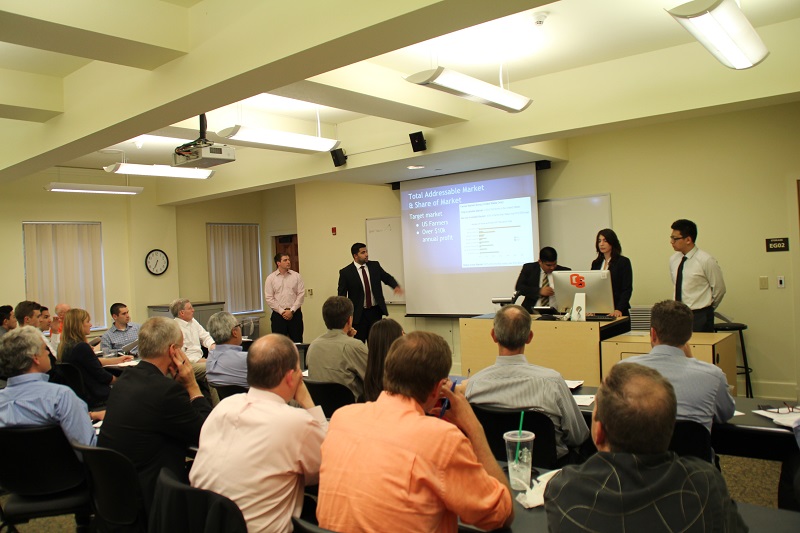News, articles, and interesting stuff from the College of Business
Seniors Taking Technology Commercialization Class Embody Experiential Learning

Graduating seniors taking Strategy and Entrepreneurship professor Mark Van Order’s Technology Commercialization class (BA 468) just concluded one of the largest, most hands-on class projects most of them have experienced in their undergraduate careers. The class had just two objectives: learn how to evaluate whether an actual, innovative technology has commercial value, and if so; what’s the best path to commercialize the new technology?
Using the book “Running Lean” and the “Lean Canvas” approach as the primary methodology for evaluating business opportunities, the class was divided up into four teams, and each was assigned a real potential business to evaluate. 
After thoroughly researching and exploring all the ins and outs of their potential venture throughout the spring term, it all came down to a final business plan competition in which each team had just 25 minutes to pitch their business plans to a panel of Portland Business Roundtable judges, who then thoroughly grilled the students about every conceivable detail of their technology and chosen commercialization model.
After each presentation, the judges convened to score each team on a scale of one to five based on how well the material was presented and whether it was clear and easy to follow, and on whether or not the presentation style maintained the audience’s attention and reinforced the critical points of the business case while using the allotted time effectively.
“This class was a departure from the norm, and I really enjoyed the freedom it afforded me as a student,” said business administration senior Trevor Smith. “It’s not often as students that we we get the opportunity to be exposed to the ‘real world’. Actual industry trends and practices drove this project and determined what we did at every step, which is a unique experiential learning opportunity. Unlike other classes where students simply develop business plans, this class was more than just an academic exercise. It was reality,” said Smith.
“This experience definitely prepared me for the real world and taught me that no business plan is perfect the first time through. It takes a lot of adjustments as well as copious amounts of research and talking to various people until you get the answers you need,” said speech communication  major Halia Parish. “It was a pleasure being in this class and getting away from the typical reading and test taking and actually putting our skills to work on a real-life business project,” she said.
major Halia Parish. “It was a pleasure being in this class and getting away from the typical reading and test taking and actually putting our skills to work on a real-life business project,” she said.
The result of the competition? Team Honeycomb walked away victorious for their business plan that makes drone technology commercially available for agricultural use. So if you see drones flying over a field near you soon, seniors Nick Blake, Margaret Douglass, Jesus Izquierdo-Lopez, Marco Olivera and Shujia Yuan just might have been instrumental in getting it there.
